To watch films is to watch a culture’s dreams and nightmares, a society’s anger and hope, filtered through an independent creative voice. As 2019 brings an end to a decade of cinema, an assessment of the commonalities among these films will give us insight into certain universal anxieties and pleasures. So, what were the trends and stories that coloured the past decade? The 2010s saw a reshaping of the film industry, and how films were made, consumed and distributed. It was a decade which saw a much-needed democratisation of the medium, with more and more diverse voices stepping up in front of and behind the camera. Disney, Warner Bros., Universal, Sony-Columbia and Paramount delivered blockbuster aplenty, while new independent distributors emerged as key industry players in a world without Weinsteins. So, here’s a deep dive into the defining trend stories of the last decade. Trends we saw this decade A24 becomes an indie powerhouse [caption id=“attachment_7817371” align=“alignnone” width=“825”] 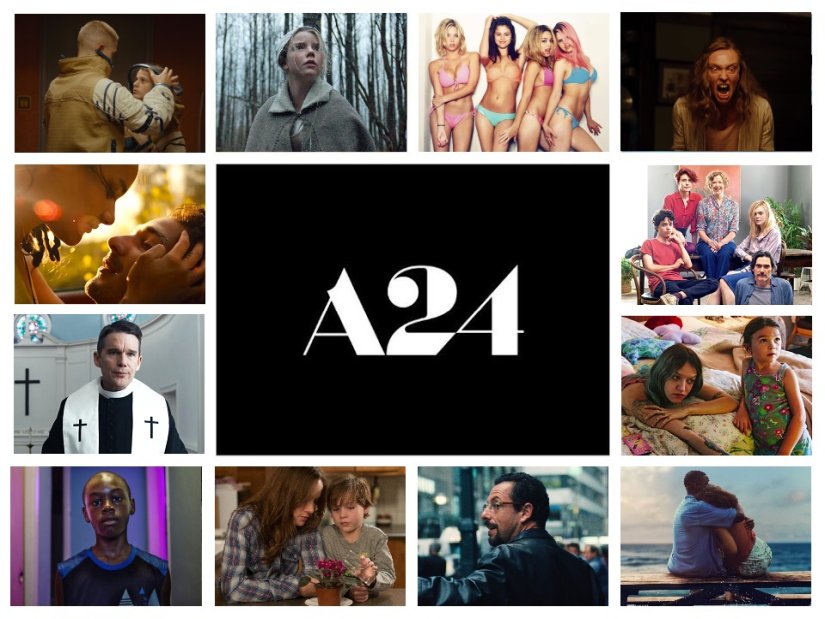 (Clockwise from top left): High Life, The Witch, Spring Breakers, Hereditary, 20th Century Women, The Florida Project, Waves, Uncut Gems, Room, Moonlight, First Reformed and American Honey.[/caption] At a recent screening of Trey Edward Shults’ Waves at MAMI 21st Mumbai Film Festival, one of the more unexpected cheers from the audience came right at the beginning when the A24 logo popped up on screen. It shows how a small label started just seven years ago has become a globally recognised face of independent cinema. A24 has not only distributed films of veterans like Paul Schrader (First Reformed) and Claire Denis (High Life), but also launched emerging talent like Shults (Krisha), Greta Gerwig (Lady Bird), Ari Aster (Hereditary), Robert Eggers (The Witch) and Lulu Wang (The Farewell) among others. It has distinguished itself from established Hollywood majors such as Sony Pictures Classics, Fox Searchlight, and Universal’s Focus Features by producing some of the best genre fare of the decade, from hard sci-fi like Alex Garland’s Ex Machina to folk horror like Aster's _Midsommar_ to the unclassifiable like Eggers’ _The Lighthouse_ . It has thus become an awards season regular, having won its first Best Picture Oscar for Barry Jenkins’ Moonlight. It has also championed transgressive filmmakers like Gaspar Noé (Climax), Harmony Korine (Spring Breakers) and Yorgos Lanthimos (_The Lobster_ ) by giving them a platform to showcase their films to a wider audience. All this and more make A24 the most important indie production house as we enter the next decade. Subtext and symbolism in the age of Trump Amid rising social and political polarisation in the United States, Hollywood became a bastion of social justice. Between the rise of white supremacy and government policies that continue to marginalise the minorities, _Black Panther_ became a cathartic cultural phenomenon . If films like Detroit, The Hate U Give and Blindspotting took a more unmistakable approach to condemn the racial discrimination and brutality routinely exhibited by police, _Get Out_ took a more subtle approach , weaving horror tropes and symbolism into an allegory on white liberal racism. Meanwhile, films like The Florida Project, Support the Girls and Sorry to Bother You captured the disillusionment and frustrations of trying to make it in a cruel capitalist system. The Big Bang of Marvel Cinematic Universe [caption id=“attachment_7817431” align=“alignnone” width=“825”] 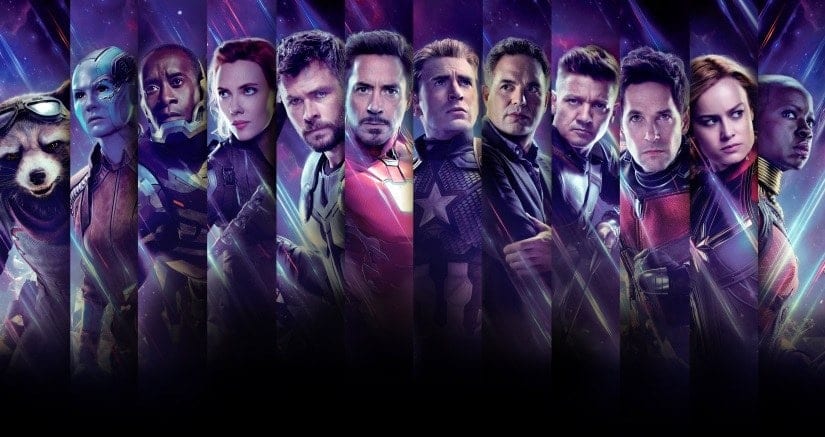 Avengers: Endgame character posters[/caption] Marvel’s saga of superheroes will be a memory and mythology we share with an entire generation. A franchise which started off with an arrogant arms tycoon named Tony Stark aka Iron Man, played by Robert Downey Jr, back in 2008 expanded into the most successful franchise of all time. Four years, five films, and a few teasing post-credits scenes later, Joss Whedon assembled the Avengers to give Phase 1 of the series a grand conclusion. Phase 2 opened up a universe where genres blended with regular superhero fare, like the political thriller Captain America: The Winter Soldier and the comedic space opera Guardians of the Galaxy. Phase 3 inspired a generation longing for more diversity and representation with Black Panther and Captain Marvel. Also read on Firstpost: A decade of superhero domination, from Nolan's Batman trilogy to expansion of Marvel cinematic universe In the process, it has turned indie auteurs (Taika Waititi and Ryan Coogler) and TV directors (Russo brothers) into blockbuster filmmakers. Though Avengers: Endgame concluded the Infinity Saga, Phase 4 promises more genre blending, more diverse casts and more catastrophic universe-ending events. Netflix changes cinema forever In an age where studios only want to fund superhero films and reboots, the criticism of Netflix as a disruptor is frankly unwarranted. Despite a cast headlined by Robert De Niro, Al Pacino and Joe Pesci, and being directed by Martin Scorsese, none of them wanted to produce The Irishman, except Netflix. The streaming giant was also behind some of this decade’s finest films in Roma, The Ballad of Buster Scruggs and Marriage Story. Meanwhile, Amazon Studios theatrically released films like Manchester by the Sea, You Were Never Really Here, Cold War and Honey Boy. Though we all wish they expanded their theatrical release strategy, the streaming services have provided access to an impressive catalogue of award-worthy and foreign language titles which would otherwise never get a screening in countries like India. Hollywood takes baby steps towards diversity and inclusion [caption id=“attachment_7817381” align=“alignnone” width=“825”] 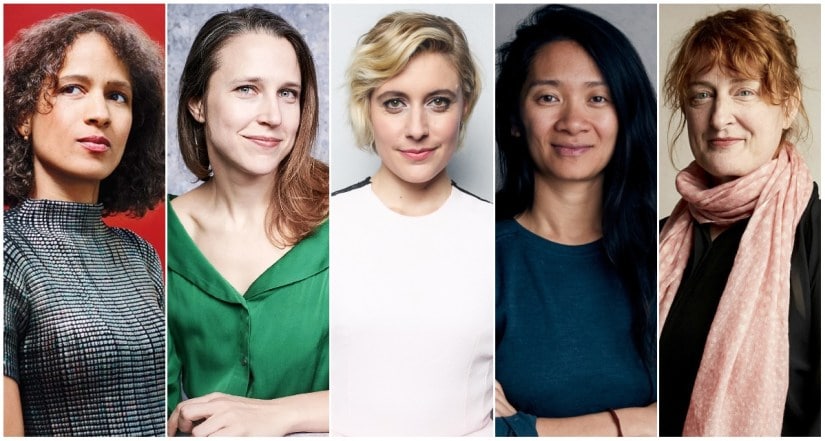 The future is female. (from L-R): Mati Diop (Atlantique), Josephine Decker (Madeline’s Madeline), Greta Gerwig (Little Women), Chloe Zao (The Rider) and Jennifer Kent (The Babadook)[/caption] If the #OscarsSoWhite controversy revealed how people of colour continue to be marginalised in Hollywood, the Time’s Up and #Metoo movements brought to light the widespread sexual violence and gender discrimination in the industry. The awards season thus became a platform for denunciations as actors like Frances McDormand pushed studio heads for more diverse representation. Major Hollywood studios have thus begun to implement measures to give people from under-represented communities more opportunities on screen and behind the scenes. The success of Crazy Rich Asians and Black Panther paved the way for a new era of inclusivity in Hollywood. Marvel Studios president Kevin Feige continues to make a push for more women and people of colour in his immensely popular superhero franchise, with films like Cate Shortland’s upcoming Black Widow and Shang-Chi and the Legend of the Ten Rings, which is set to be the first Asian-American superhero movie. But there still remains a struggle for balance between diversity and representation in Hollywood. The new wave of horror Horror films have always reflected our collective anxieties and fears, but in the troubling times we currently live in, they have taken on a therapeutic role. Stephen King has been enjoying a cultural renaissance of sorts, with Warner Bros (It, Doctor Sleep), Paramount (Pet Sematary) and Netflix (Gerald’s Game, 1922, In the Tall Grass) all mining his works for cinematic adaptations. In the midst of these giants, Blumhouse has mastered the blueprint for low-budget, high-return horror with franchises like the Insidious and The Purge films. A24 (Under The Skin, The Witch, Hereditary) and IFC Midnight (The Babadook, Kill List, A Dark Song) have also been at the forefront of this new wave of horror, giving the films a cerebral and atmospheric quality devoid in most mainstream fare. If A24 and IFC Midnight have piled on the dread with slow burns, James Wan’s The Conjuring Universe has piled on the jump scares. Robert Pattinson, Kristen Stewart get career makeovers [caption id=“attachment_7817441” align=“alignnone” width=“825”] 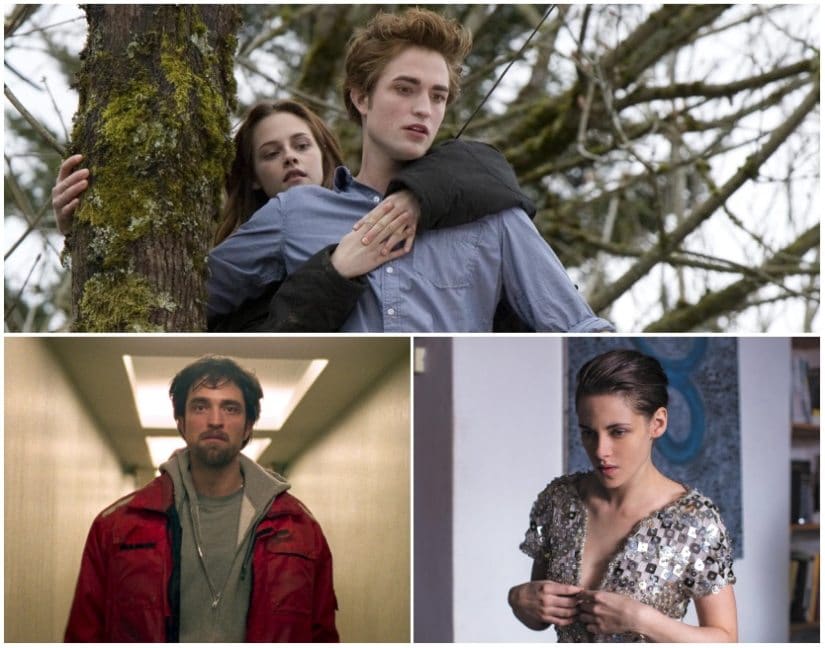 (Top) Robert Pattinson and Kristen Stewart in Twilight; (bottom) Pattinson in Good Time and Stewart in Personal Shopper[/caption] Following the Twilight saga, stars Kristen Stewart and Robert Pattinson embarked on similar, if unexpected, career trajectories, almost exclusively working with auteurs. If Stewart collaborated with filmmakers like Olivier Assayas (Clouds of Sils Maria, Personal Shopper), Kelly Reichardt (Certain Women) and Woody Allen (Café Society), Pattinson’s impressive portfolio includes films with David Cronenberg (Cosmopolis), James Gray (The Lost City of Z), the Safdie brothers (Good Time), Claire Denis (High Life) and Robert Eggers (The Lighthouse). Dakota Johnson may have followed suit, as her post-Fifty Shades career trajectory saw her work with Luca Guadagnino (Suspiria) and Drew Goddard (Bad Times at the El Royale). Though Stewart and Pattinson seem to be making a return to mainstream cinema with Charlie’s Angels and The Batman, we hope it doesn’t stop them from showcasing their dramatic chops in indie outings the next decade too. Trends we don’t want to see in 2020s Whitewashing [caption id=“attachment_4739021” align=“alignnone” width=“825”] 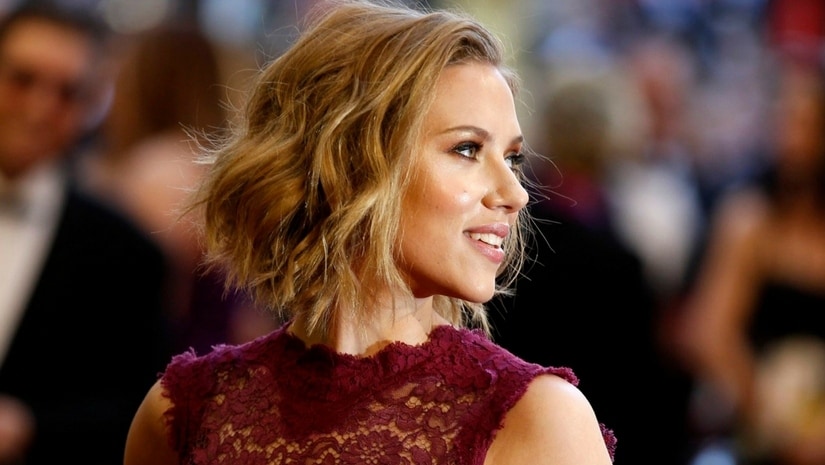 File image of Scarlett Johansson. Twitter[/caption] Hollywood’s tendency to cast white Caucasian actors in ethnically well-defined roles is frankly getting ridiculous. Ridley Scott may not want his “lead actor to be Mohammad so-and-so from such-and-such”, but no one would believe Christian Bale, Joel Edgerton and Aaron Paul were born on the banks of the Nile. When white filmmakers cast white actors in historical or biblical narratives about non-white people, they are not only appropriating their victories, traditions and myths but also refusing to acknowledge their contributions to social, economic and technological progress of civilisation. Not to mention, by favouring only white actors, they are depriving non-white actors of representation and only marginalising them further. Also, no one will complain too much if Scarlett Johansson wants to play a tree or an animal but by choosing to play Asian androids and trans males, she is taking away the already limited opportunities from those underrepresented in the industry. Reboot, reuse, recycle Hollywood’s major studios are going through an obvious creative crisis. The predominance of franchise filmmaking reveals they’re chasing their own tail by exhuming existing properties with proven success, rather than take risk with original ideas. January 2020 will see The Grudge, Bad Boys for Life and Dolittle release in cinemas, followed by Legally Blonde 3, Top Gun: Maverick, Candyman, Ghostbusters: Afterlife and Bill & Ted Face the Music later in the year. Currently, Hollywood is digging further and further back in time to find its ideas, but don’t be surprised if some of the most profitable films from the 2010s are rebooted too as early as the 2020s. Gender-flipping [caption id=“attachment_7817411” align=“alignnone” width=“825”] 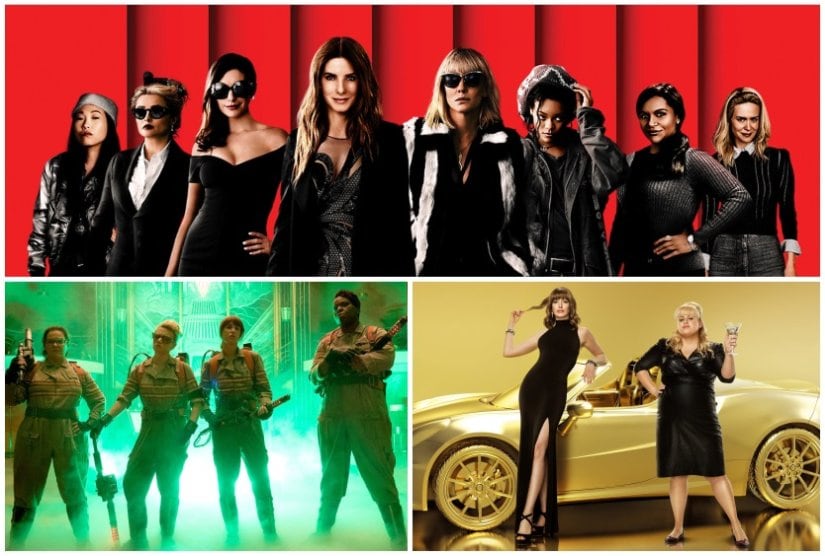 Stills from Ocean’s 8, Ghostbusters and The Hustle[/caption] One of the more infuriating symptoms of Hollywood’s reboot-reuse-recycle trend are the gender-swapped reinterpretations of classic films. The all-female remakes, like Ghostbusters and Ocean’s 8, felt like quick fix solutions to a generation hungry for more diverse voices in cinema. Though the studios’ efforts to promote a spirit of sorority is appreciated, why can’t they give us an original story featuring women, rather than piggyback on the success of previously male-helmed franchises? Disney’s monopolisation After acquiring Pixar in 2006 and Marvel Studios at the cusp of 2010s, Disney went on to absorb Lucasfilm and Fox to establish its supremacy as the undisputed leader of global entertainment. This Pixar-Marvel-Lucasfilm-Fox combination not only helped reaffirm its hegemony in the realm of CGI blockbusters but also complete its highly lucrative plan for universal infantilisation by saturating our screens with endearing toys, robots, old couples, porgs, and whatever the hell Bing Bong is. And Marvel, we can only take so much of characters in Spandex tights, even if you promise us the next superhero who will save the world won’t be a cisgender, hetereosexual male. Awards season tactics We understand the role recency bias plays in nominations during awards season. But studios have altogether stopped releasing anything worth watching at the beginning of the year and delay the releases of their best films to coincide with their awards campaigns. This needs to stop because there are hardly any quality films to give us a break from all the sequels and superheroes from January to July, unless you can afford to go to film festivals.
The 2010s saw a reshaping of the film industry, and how films were made, consumed and distributed.
Advertisement
End of Article


)
)
)
)
)
)
)
)
)



